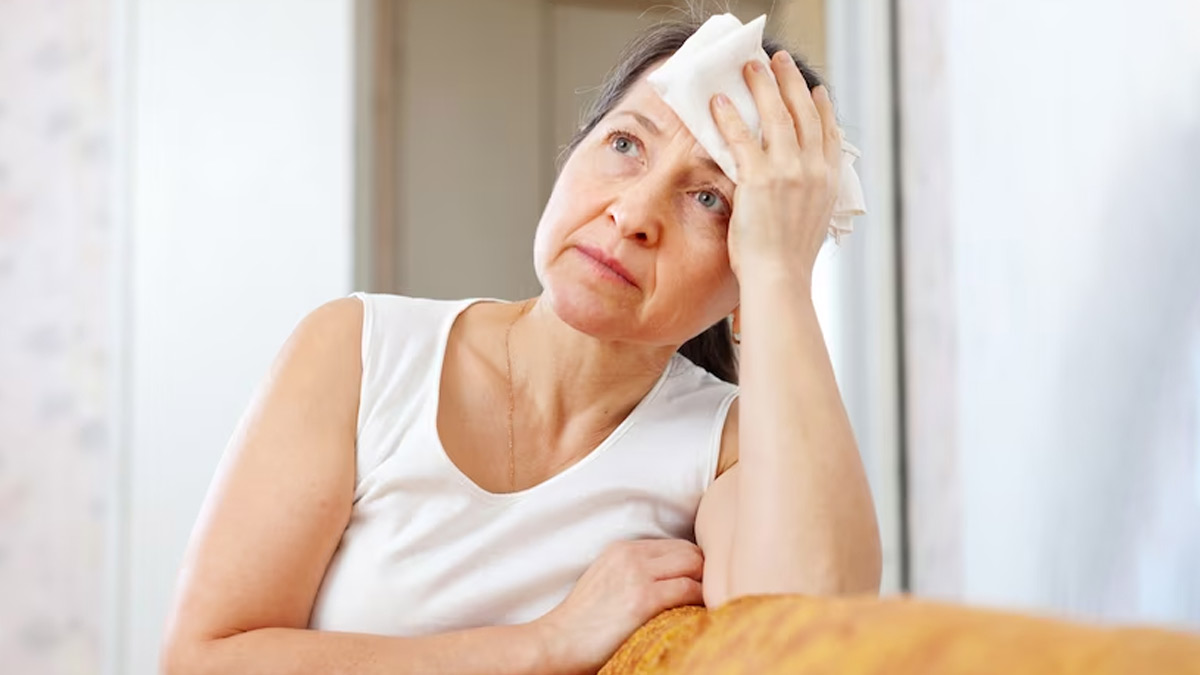
Menopause is a naturally occurring process in the body that marks the end of the menstrual cycle. With it come several hormonal and physical changes, which in turn lead to various symptoms, including hot flashes.
Table of Content:-
Hot flashes are a sudden gush of heat and warmth in the body that is accompanied by sweating, a rapid heartbeat, and a flushed complexion. These affect approximately 85% of menopausal women, according to a study published in the Journal of Mid-Life Health. Researchers further note that approximately 25% of women continue to experience hot flashes after 5 years of reaching menopause, one-third continue to experience the symptoms even after 10 years of menopause, and 8% of women have it even after 20 years of menopause.
It is important to note that certain factors can trigger hot flashes, including diet. Let’s take a look at some of the foods that should be avoided if you’re in your menopausal phase.
Also Read: Premature Menopause: Understanding Health Risks And Symptoms To Watch Out For
Spicy Foods

Some people have a tremendous appetite for spicy foods. This is primarily attributed to the chilli peppers that add so much flavour to the dishes. However, the capsaicin in hot peppers, which creates the heat sensation, might trigger hot flashes during menopause, making you feel even warmer. While research isn't conclusive, it's worth paying attention to see if spicy meals worsen your symptoms. If so, consider milder options or cool down your food before digging in.
Caffeine
Caffeine works wonders at keeping you energetic throughout the day. However, drinking an excess of it can lead to bothersome hot flashes, according to a study published in the Journal of the Menopause Society. Researchers looked at nearly 1,000 women who visited a menopause clinic and found that over 40% of them still had hot flashes. They also noted that caffeine might worsen hot flashes, particularly in women over 70.
Alcohol

A glass of whisky or wine may not seem like much. But for those in their menopausal stage, their intake must be watched.
A survey, including nearly 300 women, suggested that daily alcohol intake increased the risk of both hot flashes and night sweats in the participants. Additionally, smoking seemed to worsen hot flashes specifically.
However, studies on the link are mixed. In fact, another study published in the journal ClinicalKey concluded that alcohol could help bring relief from hot flashes. It was found that women who indulged in alcohol at least once a month were less likely to have hot flashes than women who completely cut it off. Interestingly, a 2015 study found that those who had at least one drink per day experienced a decrease in the risk of hot flashes.
Given the mixed results, it is best to see what works best for you. In general, alcohol is harmful for your overall health, and excess intake should be avoided.
Also Read: Cervical Health In Your 20s, 30s, 40s, And Post-Menopause: Explained
Processed, Sugary, High-Fat Foods

There's growing evidence suggesting a connection between what you eat and how often you experience hot flashes during menopause. Studies have found that a diet high in processed foods, sugary treats, and unhealthy fats might contribute to more frequent and intense hot flashes.
On the other hand, research also indicates that opting for a more balanced diet rich in fruits, vegetables, whole grains, and lean protein might be helpful in managing hot flashes.
Bottomline
Hot flashes may not seem very concerning. However, it is not only discomforting, but studies have linked it to cardiovascular complications and heart disease risk. A study presented at the North American Menopause Society gathering in October 2022 investigated the potential link between hot flashes and heart health.
Researchers analysed data from two studies involving hundreds of mid-life women. They found that women experiencing frequent hot flashes were more likely to have risk factors for heart disease, such as high blood pressure, diabetes, and high cholesterol.
Therefore, it is important to watch out for triggers and invest in foods high in nutrients and good for your overall health. A diet rich in whole grains, fruits, vegetables, and nuts and seeds is usually considered wholesome for those in their menopausal stage. Consulting a doctor may also help manage your symptoms.
Also watch this video
How we keep this article up to date:
We work with experts and keep a close eye on the latest in health and wellness. Whenever there is a new research or helpful information, we update our articles with accurate and useful advice.
Current Version
